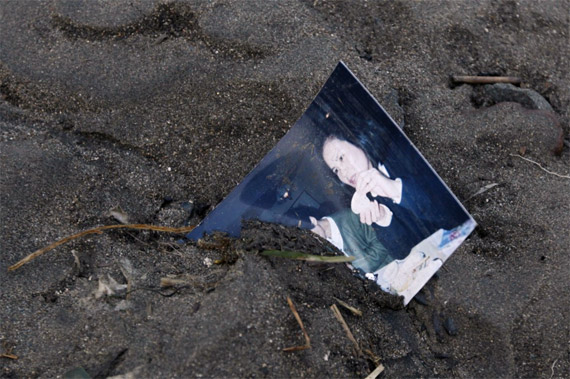Moderniser le nucléaire
Rikuzentakata, Iwate - 陸前高田市 (Lee Jae-Won/Reuters).
The situation in Japan is horrific — but because of the earthquake and tsunami, not because of the malfunctioning atomic reactor station. The earthquake and its awful aftermath killed at least thousands of people, perhaps tens of thousands. That is an unspeakable tragedy. The damaged reactors at Fukushima haven’t killed anyone, and while posing a clear danger, especially to workers heroically fighting the malfunction, the odds are that any harm to public health will be minor, if public health is harmed at all.
Yet in the United States and European Union, what’s happening at the power plant is receiving more attention, and generating more anxiety, than thousands of innocents crushed or drowned.
Japan is the sole place nuclear weapons have been used: to see the Japanese suffer, again, from fear of the atom is heartrending. But the reaction to the power plant in Japan shows lack of perspective. Today’s Washington Post front page proclaims, in large type, a “FULL- BLOWN NUCLEAR CATASTROPHE.” The earthquake and tsunami were catastrophes; the power plant leaks may cause little harm, let alone represent a “catastrophe.”
[…] Antiquated reactors like Fukushima should be replaced with new nuclear designs. The Japanese station uses a half-century-old engineering concept called “boiling water” reactors. The devices are obsolete plumber’s nightmares: they need to be torn down and replaced with modern reactors. Broadly across the world, old reactors designed in the 1950s and 1960s, when far less was known about controlling atomic power, need to be taken out of service and replaced with modern designs that do not have the problems experienced at Fukushima.
All 104 nuclear power reactors in use in the United States are 30 or more years old, based on obsolete engineering. They need to be demolished and replaced with improved designs. Modern reactors require fewer moving parts than reactors of the 1950s and 1960s, and employ a new idea, “passive” safety. Passive safety means failures are not emergencies — if the cooling pumps fail, as happened at Fukushima, the atomic reaction simply stops. Hit by the same earthquake, a modern reactor would not have gone haywire.
Yet political opposition to construction of new atomic power plants is preventing the spread of improved modern reactors. Yesterday, Germany and Switzerland said they would postpone plans to tear down obsolete reactors and replace them with modern designs. Attempts in the U.S. to obtain political permission to demolish obsolete reactors, in favor of new systems, are likely to be set back.
This is exactly the wrong conclusion. If the Japan accidents produce a new wave of opposition to new reactor construction, the result will be to lock into place a profusion of obsolete reactors with antiquated engineering. Japan should have replaced the Fukushima reactors with a modern station years ago. Will other nations refuse to act, and wait till the next obsolete reactor fails?
Gregg Easterbrook: “Japan’s real disaster”.



william
Allègrement n’importe quoi.
Dave
Je ne sais même pas pourquoi des gens comme Gregg Easterbrook se fatiguent à essayer de remettre les choses dans un contexte raisonné et non-hystérique: à la fin, comme toujours, c’est les imbéciles qui crient le plus fort en courant dans tous les sens, qui se feront entendre.
L’avantage de prédire l’apocalypse au moindre éternuement, c’est que tout le monde est trop soulagé pour vous le reprocher quand ça s’avère être du pipeau. Et si par hasard vous avez raison une fois sur un million, personne ne s’avisera que vous avez eu tort les 999,999 fois précédentes. Du coup on aurait bien tort de se gêner.
Même les pendules cassées sont à l’heure deux fois par jour, hein…
franCk
@william: Pas complètement, ce serait trop facile… Par exemple, le fait qu’il y ait 6 réacteurs à Fukushima est lié, au moins en partie, à la difficulté de faire accepter une implantation de centrale à la population, alors on préfère empiler au même endroit - à ce moment, si on ne multiplie pas les risques, on multiplie les conséquences d’un accident : si un des réacteurs a une avarie due à des causes externes, les réacteurs identiques placés juste à coté ont bien sûr de fortes chances de subir la même avarie… Évidemment, le risque zéro n’existe pas et la question qui demeure est si on risque de tout perdre, même avec une chance infime, est-ce que ça vaut la peine de jouer? Certains politiques ont répondu oui… sous la poussée des lobbies nucléaires certainement… mais aussi sous celle des consommateurs!
Blah ? Touitter !